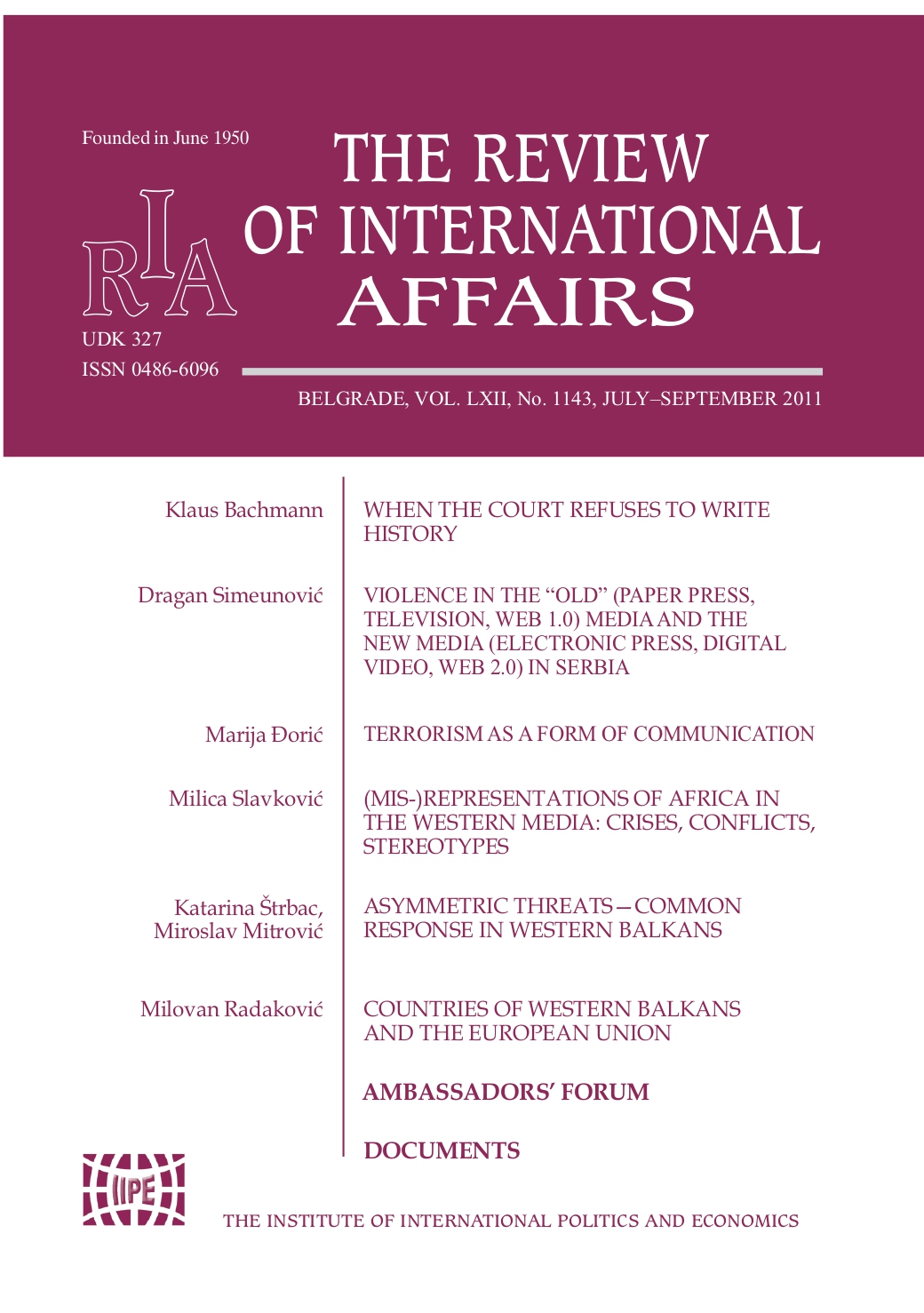When the court refuses to write history
When the court refuses to write history
Author(s): Klaus BachmannSubject(s): Politics / Political Sciences, Law, Constitution, Jurisprudence
Published by: Институт за међународну политику и привреду
Keywords: ICTY; transitional justice; Račak; truth; international human rights organizations
Summary/Abstract: The following article analyzes the way, in which different ICTY trial chambers evaluated the events in Račak 1999. In order to do that, the concept of framing is used. Frame analysis is a popular approach in media research, where it serves as a tool for comparing the way, in which different media outlets present events, people and facts to their readers. In this article, frame analysis is used in order to show differences and similarities between the frames used by the ICTY prosecution teams dealing with Račak and trial chambers at one hand, and the frames used by actors external to the ICTY on the other hand. The comparisons reveal, whether the trial chambers’ frames about Račak were likely to be influenced by external actors like foreign governments, international human rights organizations and influential international media. We argue, that such influence cannot be excluded, when external actors’ frames are consistent with the trial chambers frames. It can be excluded, though, when the trial chambers’ frames a do not show any similarities or contradict the frames of such external actors. The article provides some surprising insights. Although the ICTY judges’ assessment of the events in Račak 1999 are to a large extent congruent with the frames put forward in 1999 by Western governments and international human rights organizations, they never sentenced anyone for the crimes, which allegedly had taken place in the village. This even more astonishing, if one takes into account, that immediately after the events, the Office of the Prosecutor had demonstrated a strong engagement to investigate the events. The events had been strongly politicized and by many historians are regarded as a key event which led to the Rambouillet talks and triggered the bombing of the Serbia in 1999.
Journal: The Review of International Affairs
- Issue Year: LXII/2011
- Issue No: 1143
- Page Range: 5-33
- Page Count: 29
- Language: English

